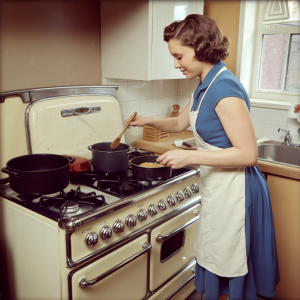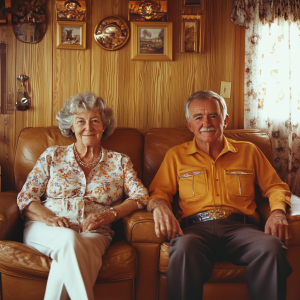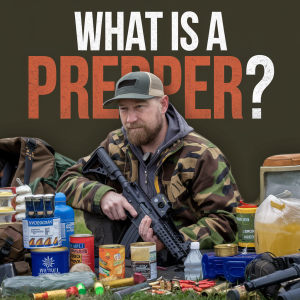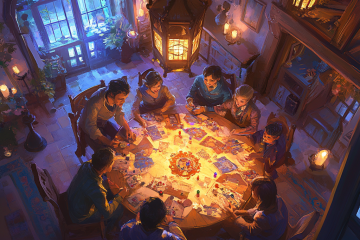
1950’s self-reliant housewife
# The Modern Prepper: Returning to Traditional Self-Reliance
In recent years, the term “prepper” has entered our cultural lexicon, often conjuring images of underground bunkers and extreme survivalists. But strip away these sensationalized stereotypes, and you’ll find something far more familiar and fundamental: the age-old wisdom of self-reliance and personal responsibility that our grandparents simply called “common sense.” Unfortunately, common sense is so uncommon today that we label people with this odd label of a “prepper” just for practicing the art of responsibility of their own life.
A prepper, in its purest form, is someone who believes in being prepared for life’s uncertainties. It’s not about anticipating doomsday scenarios or living in fear of the apocalypse. Rather, it’s about embracing the timeless virtues of self-sufficiency, resourcefulness, and prudent planning that previous generations practiced as a matter of course.
Our grandparents weren’t “preppers” – they were simply practical people who understood the value of being ready for whatever life might throw their way. They maintained well-stocked pantries, knew how to preserve food, kept emergency supplies on hand, and possessed practical skills that helped them weather both daily challenges and unexpected crises. They weren’t driven by fear but by a quiet confidence that came from being prepared.
The modern prepper movement, at its heart, is a return to these traditional values. It’s about taking responsibility for oneself and one’s family rather than assuming that external systems will always be there to provide support. This self-reliance isn’t born from paranoia but from a pragmatic understanding that life is unpredictable, and being prepared brings peace of mind.

Grandma and Grandpa in 1970
This approach to preparedness aligns closely with stoic philosophy – accepting that while we cannot control everything that happens to us, we can control how we respond to it. A true prepper understands that preparedness is not a destination but a journey of continuous learning and improvement. It’s about developing skills, building resources, and cultivating a mindset that empowers us to face challenges with confidence.
In practice, modern preparing might mean:
• Learning basic home repair skills
• Maintaining an emergency fund
• Growing a small garden
• Keeping a well-stocked first aid kit
• Learning to preserve food
• Developing practical skills
• Building community connections
• Understanding basic survival skills
These are not radical actions – they’re the same practical steps our ancestors took to ensure their families’ well-being. The only difference is that we’ve given it a new name.
Being a prepper is ultimately about peace of mind. It’s knowing that you’ve taken reasonable steps to protect yourself and your loved ones from life’s uncertainties. It’s about being proactive rather than reactive, and understanding that true security comes not from fearful hoarding but from thoughtful preparation and skill development.
The next time you hear the term “prepper,” think not of extremism but of your grandparents’ generation – those who understood that self-reliance and preparation weren’t extraordinary measures but simply part of living a responsible, well-ordered life. In many ways, the modern prepper movement isn’t new at all – it’s simply a return to the wisdom our ancestors took for granted.

What is a Prepper?
In an age of increasing uncertainty and dependence on complex systems, perhaps it’s time we all became a little more like our grandparents: practical, prepared, and self-reliant. After all, being a prepper isn’t about preparing for the end of the world – it’s about being ready for whatever tomorrow might bring, just as generations before us have always done.


